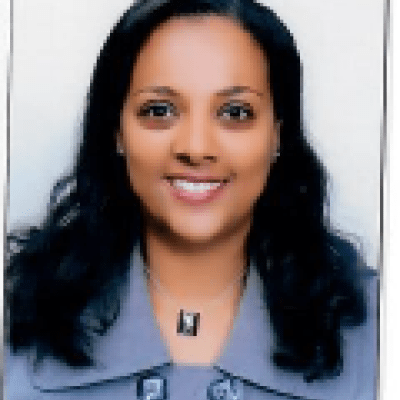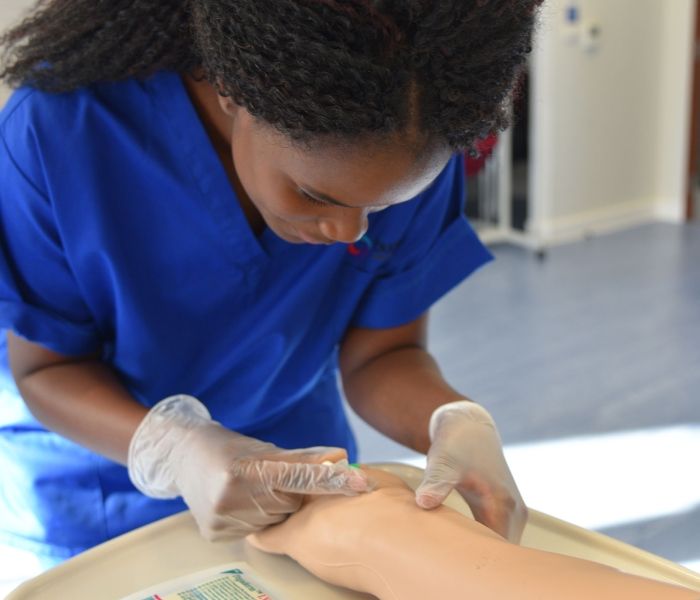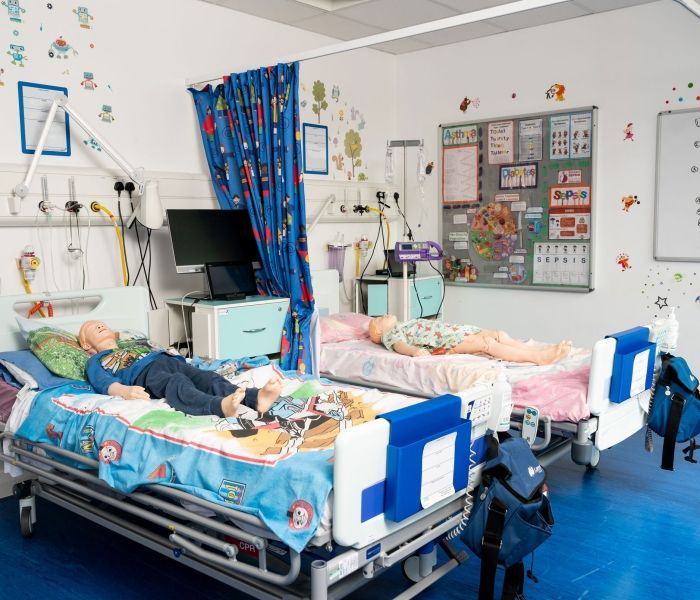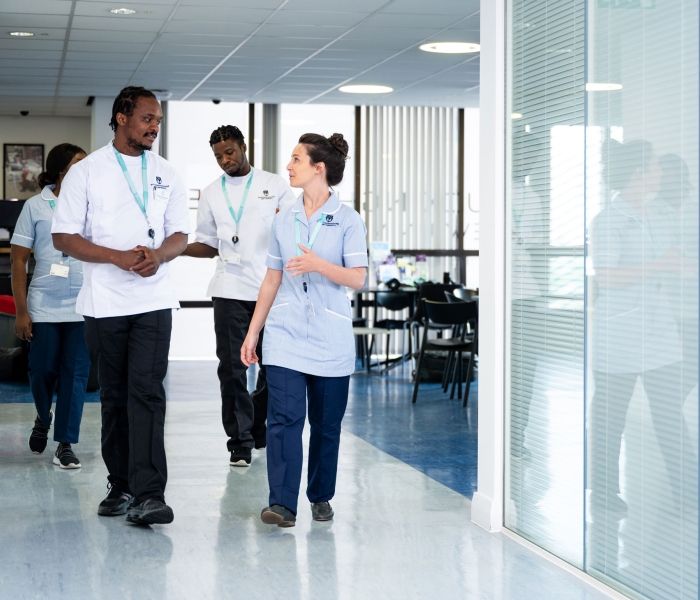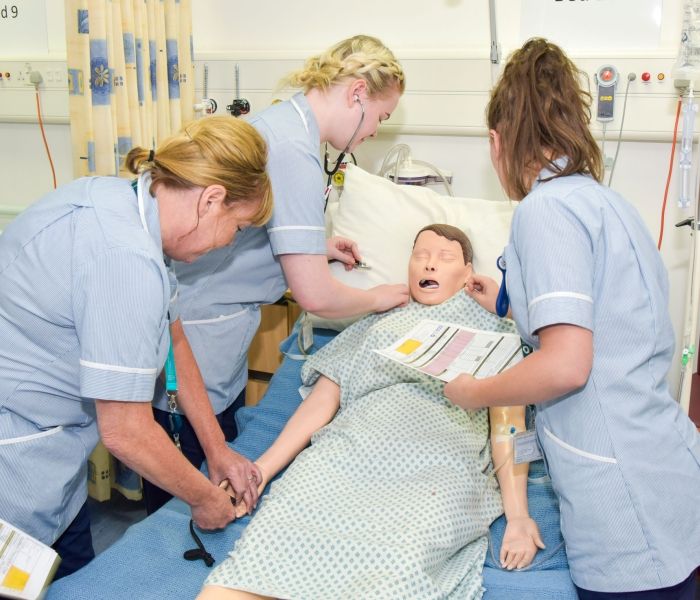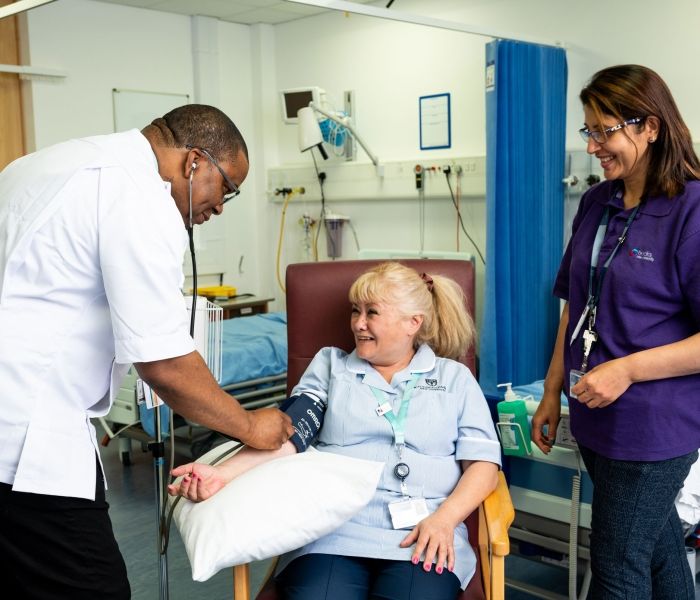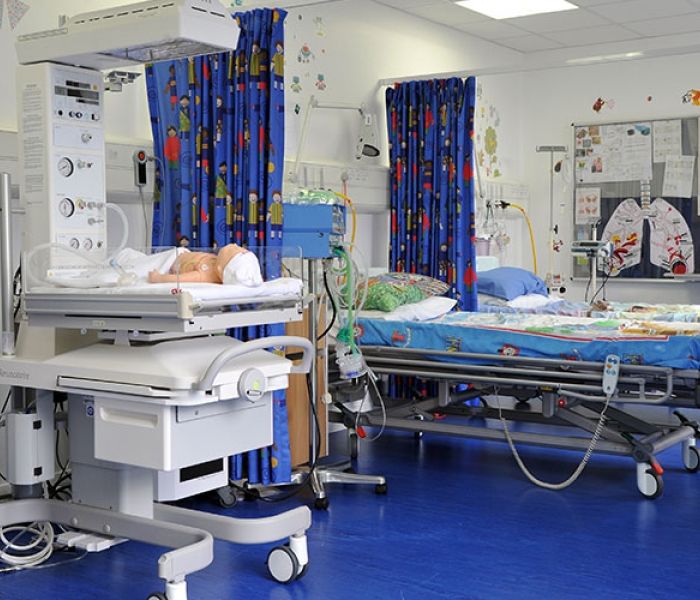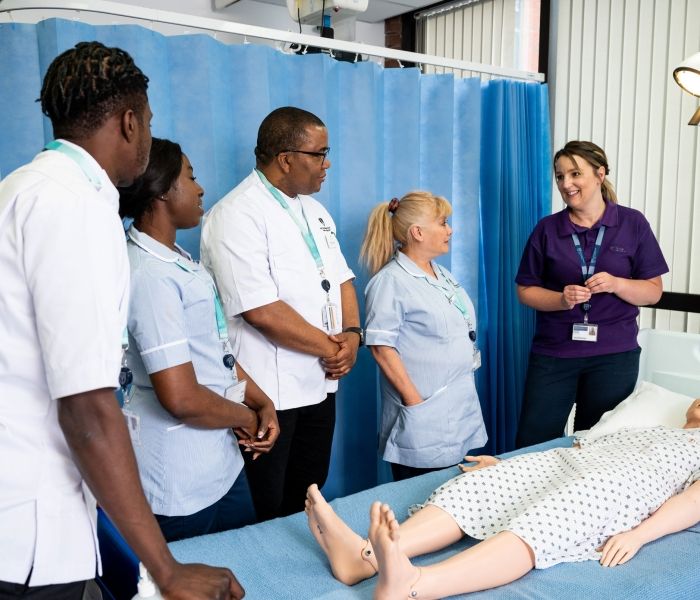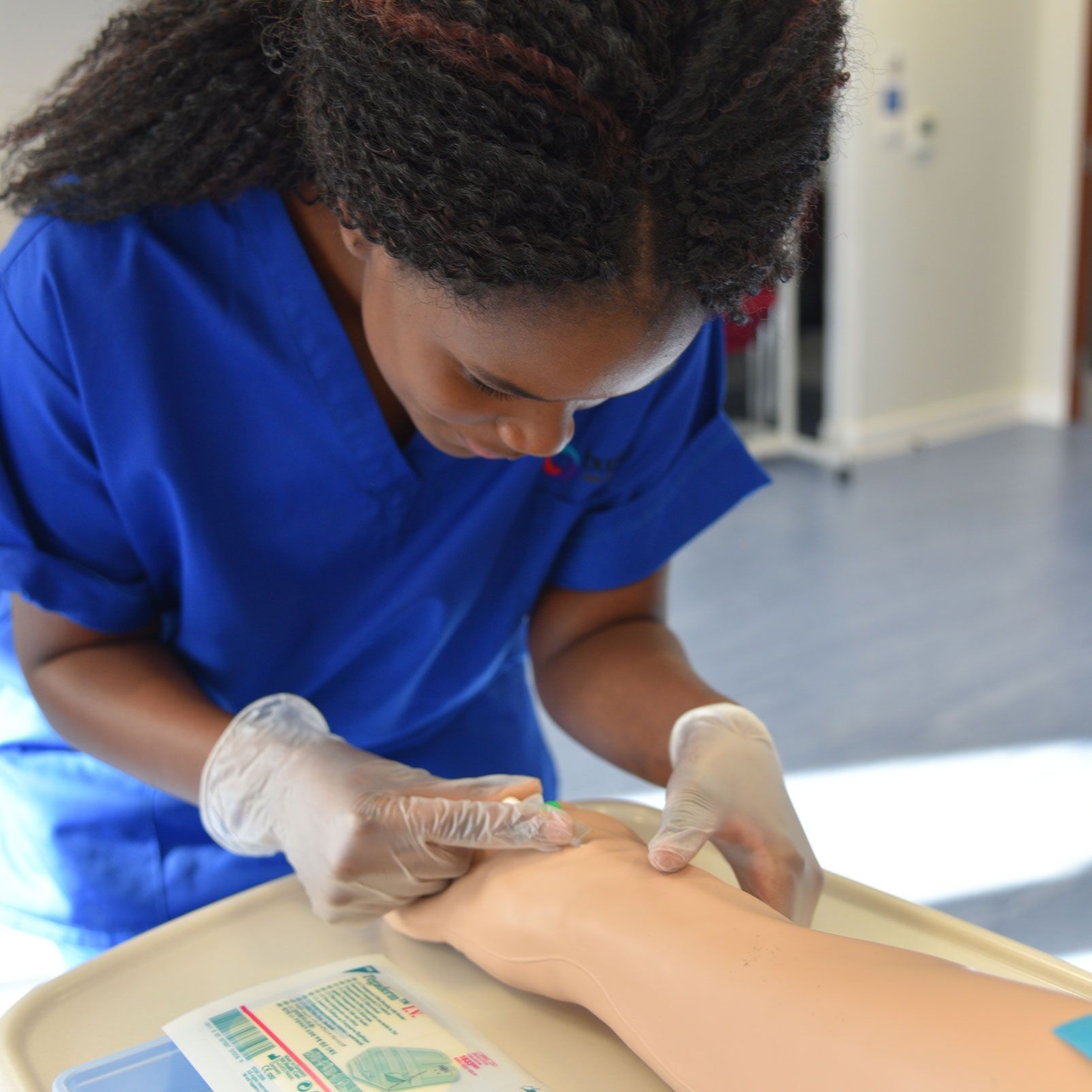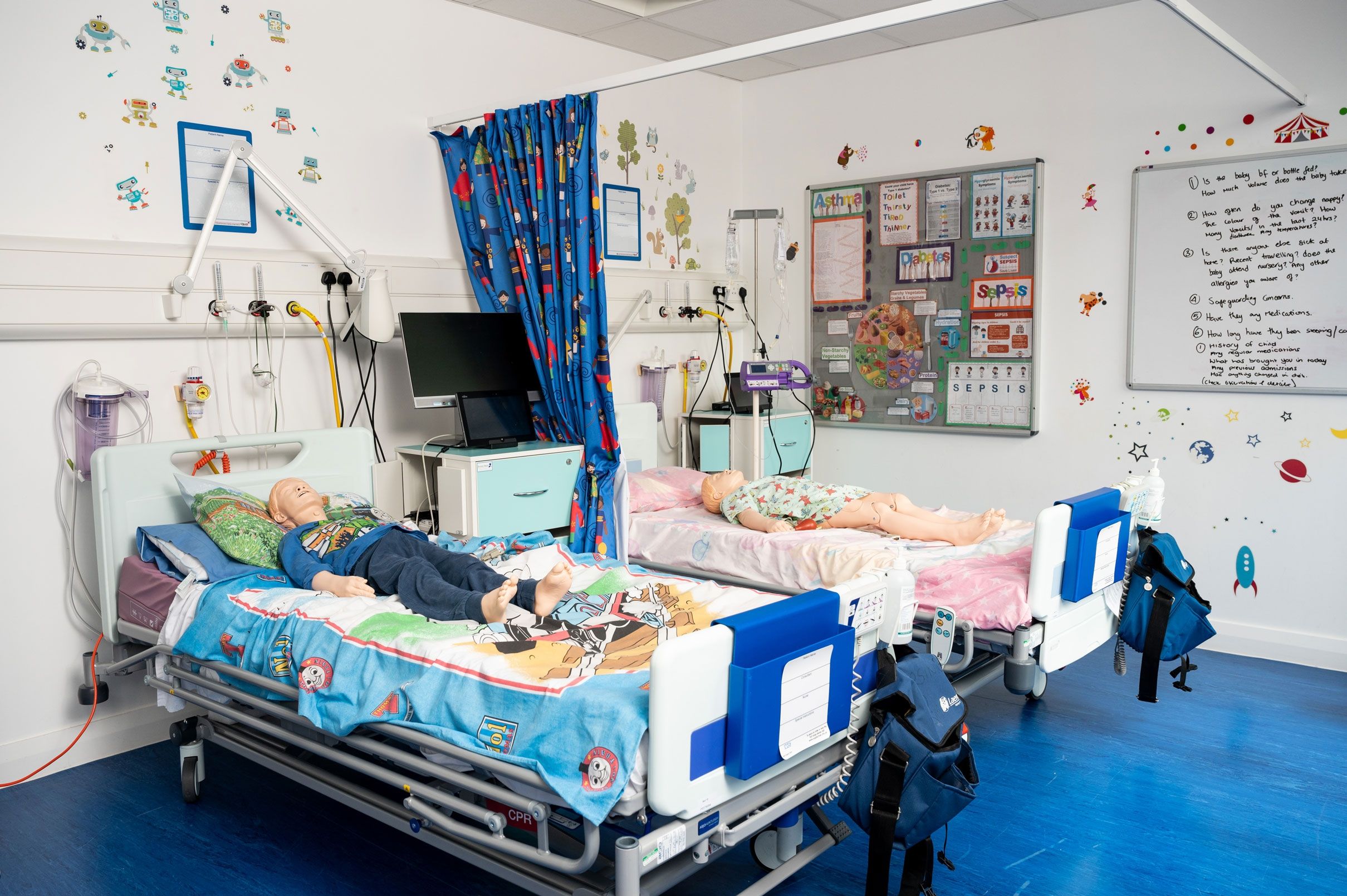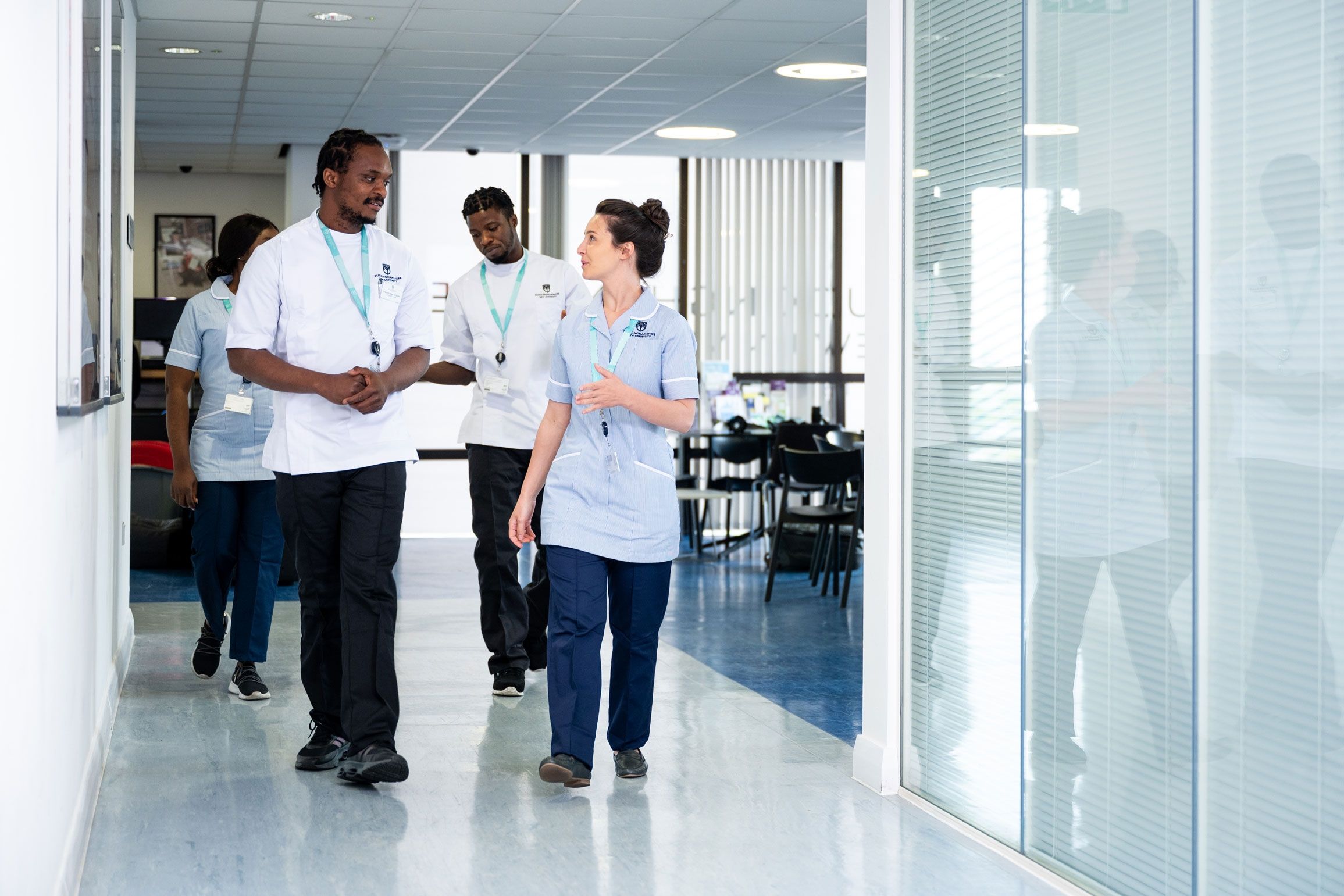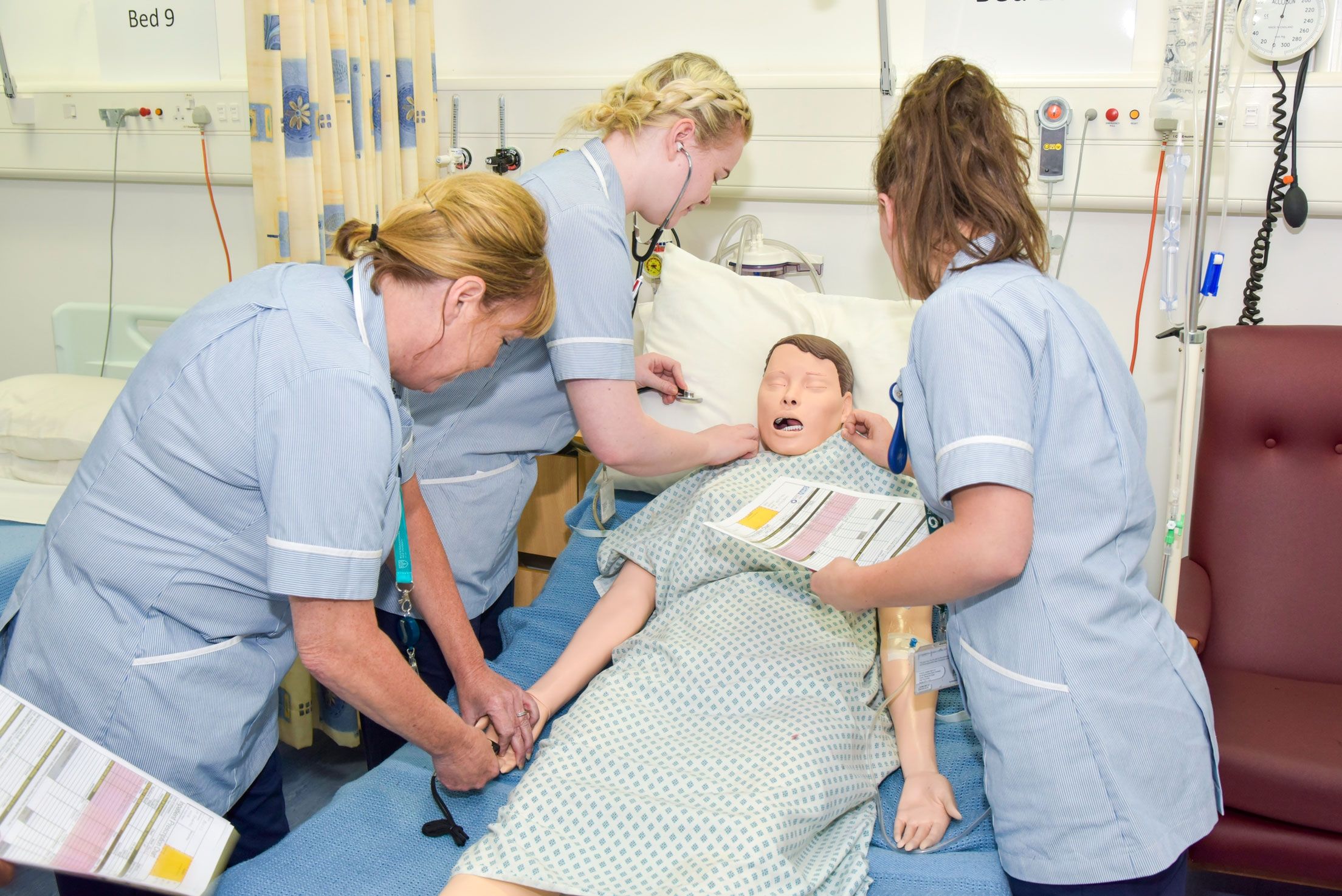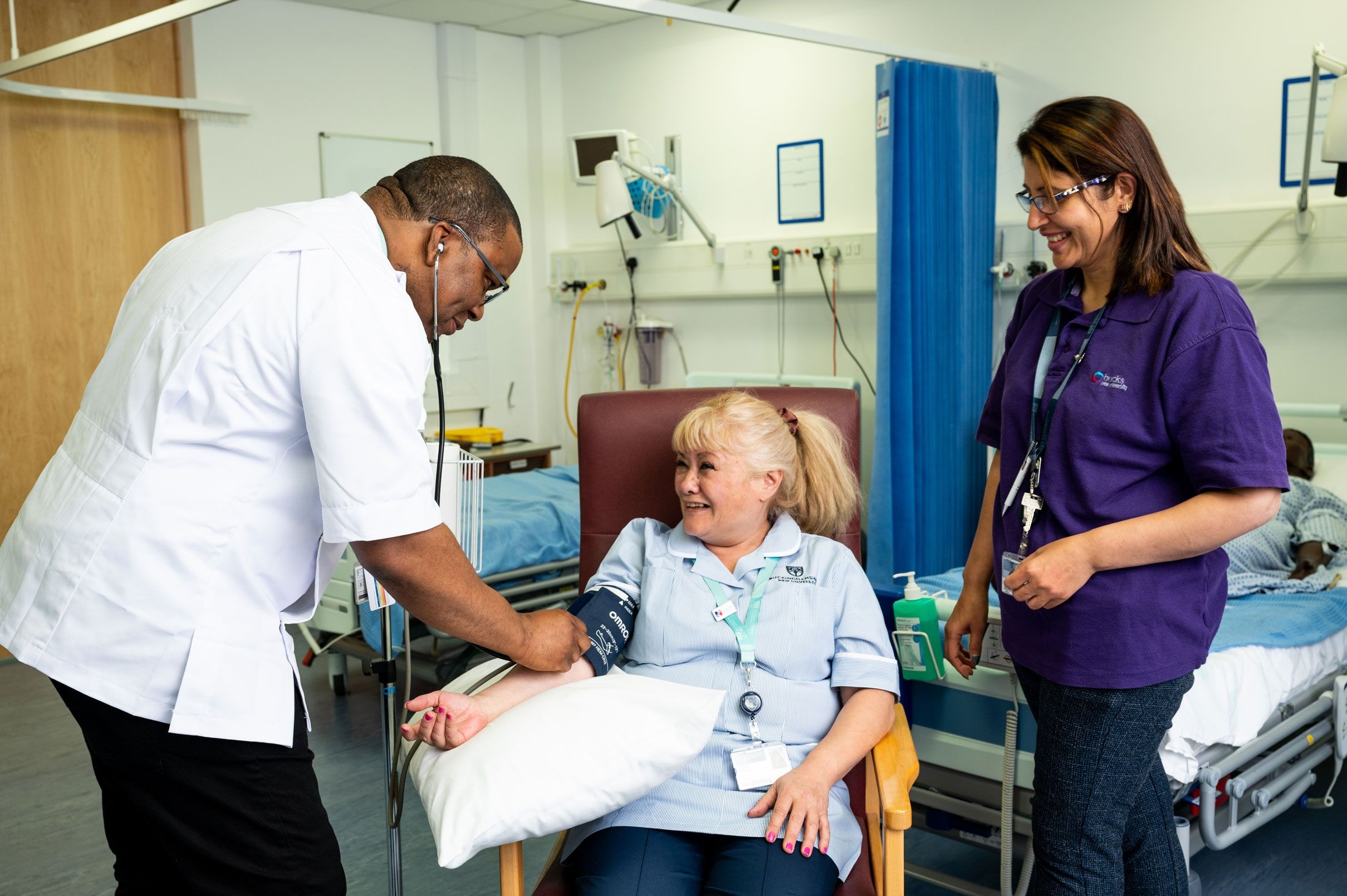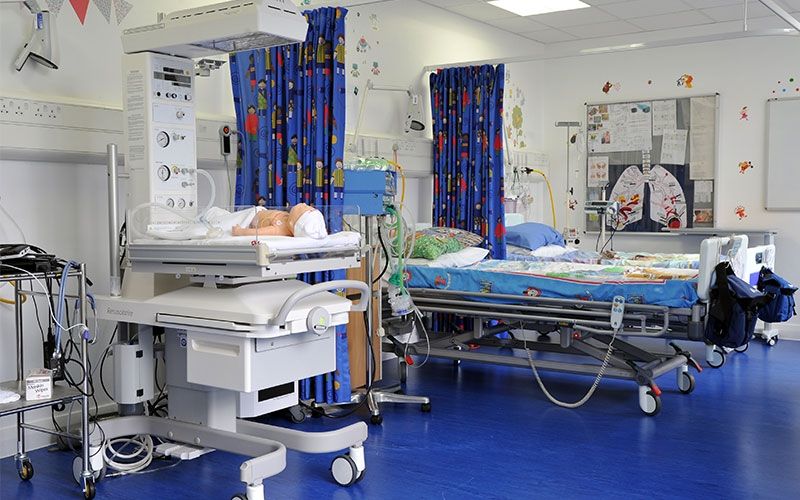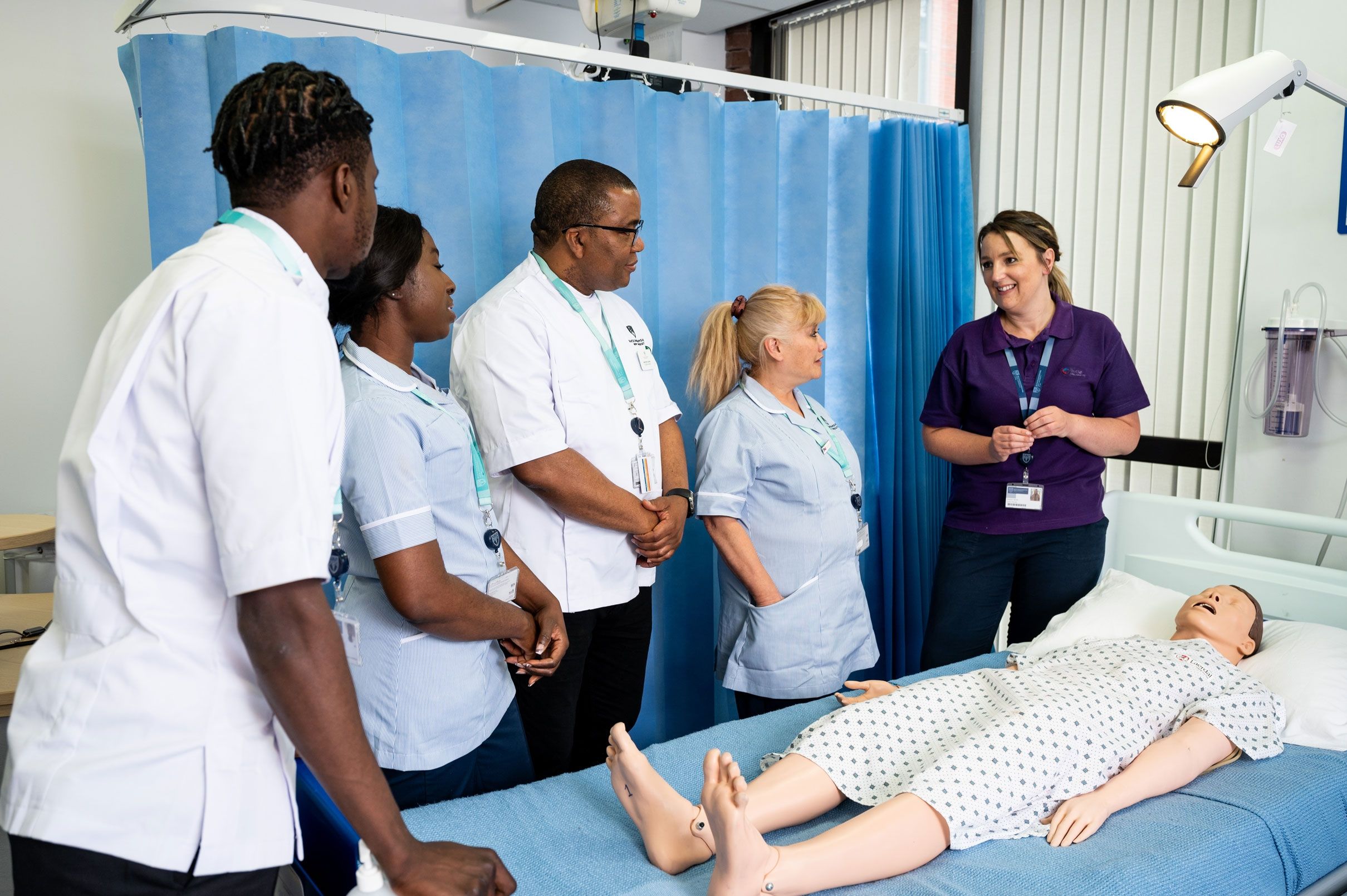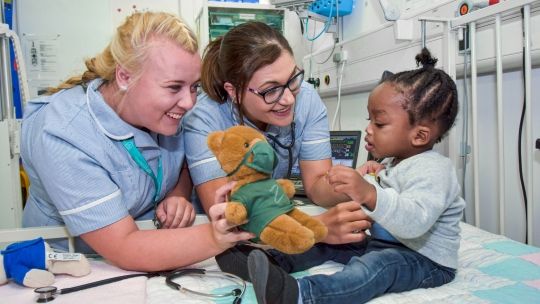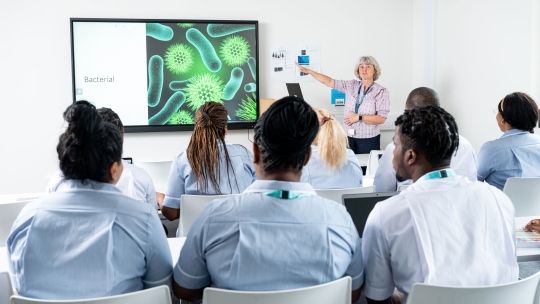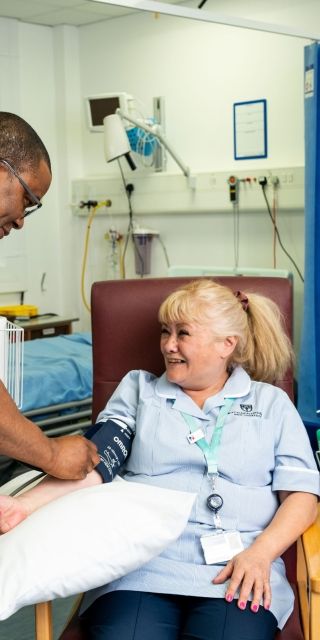
BSc (Hons) Adult Nursing
- Study Mode: Full Time
- Location: High Wycombe / Uxbridge / Aylesbury
- Duration: Three Years
- Start Date: September 2024 and January 2025
From our births to our deaths, during our lifetime we will all need care at some point. Nurses are the foundation of our NHS, hospitals, clinics and care units. If you are a compassionate and empathetic person seeking a profession where your actions can profoundly impact individuals during their most vulnerable moments, then our BSc (Hons) Adult Nursing is for you. Upon successful completion of the degree, you’ll be eligible to register with the Nursing & Midwifery Council (NMC).
Our adult nursing degree programme integrates academic study alongside practice-based learning. It is underpinned by a strong collaboration between the University, service users (experts by experience) and our NHS practice partners, in response to both Nursing & Midwifery Council policy and regulatory developments.
On successful completion of the course, you’ll be eligible to apply for your NMC registration, meaning you’ll then be able to practice as a qualified nurse.
Throughout the course, you’ll allocate approximately half of your time to clinical practice and the remaining half to University-based learning. Our strong partnerships with various NHS Trusts and independent care providers in the region ensure that students have diverse and enriching clinical placements.
BNU works closely with a range of practice partners across Buckinghamshire and London. You will be allocated to one or more of the following to experience hospital and community based care:
- Buckinghamshire Healthcare NHS Trust
- Frimley Health NHS Foundation Trust
- Central and North West London NHS Foundation Trust
- Imperial College NHS Foundation Trust
- London North West University Healthcare NHS Foundation Trust
- The Hillingdon Hospitals NHS Foundation Trust
- Chelsea and Westminster Hospital NHS Foundation Trust
- Harefield Hospital (part of Guy’s and St Thomas’s NHS Foundation Trust)
And you may have a placement in a number of private health care providers or a GP surgery.
At our three campuses, we have impressive facilities with state-of-the-art equipment. You’ll get to recreate real scenarios in realistic 'wards' so when you’re out on placement you’ll be confident in your adult nursing skills.
Our facilities offer a high-fidelity environment, which includes the use of NHS approved consumables, genuine functioning equipment and technology enhanced manikins. The essential element of de-brief in simulation is undisputed; audio/visual technology is available and widely used by the teaching teams to enhance feedback to learners.
You will also benefit from up-to-date PROMPT advanced models where you’ll practice resuscitation using authentic equipment. All the technology and equipment supplied to you enables you to become familiar with kit and techniques used within the local hospital trusts.
Led by a dedicated teaching team of professional nurses and educators, you’ll have access to their wealth of clinical expertise and research activity. This will allow you to benefit from their experiences, insights and perspectives to enhance your learning.
Whilst nursing is a rewarding career, we also understand studying nursing at university can be challenging at times. Throughout your time on the course you’ll gain direct support both in the classroom and on placement, as we provide a personal tutor who will check in with you on a regular basis and practice visitors to support your learning in practice.
On campus you can find further support in the form of our Student Wellbeing Centre and our Student Learning Achievement Centre. Here we will be able to help you with a range of areas such as academic writing and building your CV.
To support your studies, the UK Government are continuing to provide adult nursing students with a payment of at least £5,000 a year which will not need to be paid back. Find out more about the NHS Learning Support Fund and the eligibility criteria.
What will I study?
Becoming an Adult Nurse is a deeply personal and rewarding choice. As a qualified nurse you’ll have the opportunity to grow and take on a range of specialties and roles, providing opportunities for career advancement.
From emergency care, district nursing, operating theatres, surgical wards to caring for vulnerable and older people to developing leadership skills, no day is the same. You’ll be continually learning and evolving in your role.
Being a nurse is a profession that can see you working worldwide, and the impact and contribution of nurses is recognised and needed both nationally and internationally.
During your time on the BSc nursing course, you'll be working alongside experienced health care professionals who will help you to become a caring, confident, competent and practice-ready nurse.
We’ll help develop, encourage and nurture you throughout your studies. You’ll be supported in gaining the skills and knowledge you need to meet and manage the holistic, person-centred care needs of individuals across the lifespan in relation to the health-illness spectrum.
You’ll learn how to perform a range of nursing skills with proficiency, predicated on contemporary knowledge and the understanding of best practice. As well as this you’ll be taught how to assess and review mental, physical, cognitive, behavioural, spiritual and social needs to identify the priorities and requirements for evidence-based nursing interventions and support.
From being able to refer to policies and procedures, to pharmacology, treating pressure ulcers and assessing and making the right care-decisions for a patient, you’ll understand how to work as critically reflective, resilient practitioners, with an ability to learn from experience and solve problems.
Our team of experienced and dedicated lecturers have a collective wealth of knowledge from working in a range of health care and clinical environments across the NHS and private sector.
The curriculum includes core and field specific learning and teaching. This allows students from adult, mental health and children’s nursing courses to be taught and learn together, so you can benefit from their individual experiences, share insights and offer competing perspectives. You’ll be able to demonstrate your awareness of, and competence in working within, the multi-disciplinary teams within practice environments.
This innovative curriculum reflects Buckinghamshire New University’s core values of creating a learning environment that is inclusive, challenging and promotes collaboration, professionalism, and confidence in our students.
If you choose to study the BSc (Hons) Adult Nursing with Foundation Year you will complete a ‘preparing for a career in nursing’ project discussing professional and NHS values and ethics, including exploring the NHS constitution and the Nursing and Midwifery Council (NMC) code.
Upon graduation you’ll be a compassionate, proficient, confident, and digitally able nurses, who is able to adopt a biopsychosocial, person-centred approach, working autonomously and accountably, within the integrated care system.
In my place of work I introduced some changes in the nursing department based on what I learnt at BNU. This change was accepted and adopted by the nursing department and it has greatly improved patients experience and ensured continuity of care. I also now teach everyone from doctors to waste handlers on infection prevention and control practices.Mary Okuku
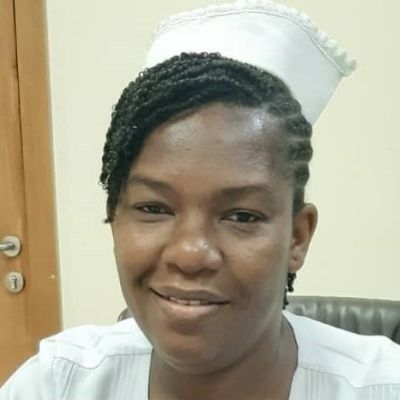
How will I be taught and assessed?
This full-time pre-registration nursing programme seamlessly blends academic and practical learning, fostering collaboration between the University and practice partners. Embracing a student-centred philosophy, the course enables you to gain essential knowledge, skills, and professional values necessary for the delivery of compassionate, safe, and effective nursing care.
When you’re on campus, your academic study will be undertaken through varying including seminars, lectures, exploring authentic scenarios and case studies as well as virtual learning.
Simulation is valued within the School of Nursing and Midwifery as supportive in enabling our nursing students to acquire skills and behaviours through practice. Nursing simulation incorporates the use of human patient simulators in a virtual ‘real-life’ healthcare environments and situations. Within this learning environment, real-time evolving clinical situations can be simulated, repeated, evaluated, and reflected, reducing the risk of patient harm.
To help build your digital skills, online teaching and digital learning opportunities, such as discussion boards and interactive web-based activities, will also be integrated throughout many modules within this programme. This helps you to develop and enhance the necessary digital skills required to work in today’s health care environments.
We include assessments which reflect real life nursing practices and, across the three years, you will be assessed through a number of means, such as:
- reflective assignments
- presentations
- exams
- academic poster development
- assignments
- literature review
- oral exams.
You are also required to complete the knowledge skills and behaviours included in the Practice Assessment Document in each year of practice.
What are the course entry requirements?
A typical offer will require a UCAS tariff score of: 112 - 136 (Full-time) or 48 - 88 (Foundation Year)
UCAS points can be obtained through qualifications such as A levels, T levels, BTEC or an Access to Higher Education course in a relevant subject. Please list all your qualifications on the application form as you will be asked to provide copies when we receive your application.
The requirements for this course are equivalent to:
- A level grades at BBC or above
- BTEC Level 3 Extended Diploma at DMM
- International Baccalaureate at 30 points
- FETAC / QQI 5 Distinctions in health care-related subjects
- Access to HE Diploma in Nursing qualification (Minimum 60 credits overall with 12 Merits and 30 Distinctions at Level 3 and 15 Credits at Level 2 at Pass)
- T levels: Minimum Merit overall in Health pathway subject (Health, Healthcare Science, Midwifery and Science)
You will also need 5 GCSE’s including Maths, English and Science at grade 4/C or above or equivalent.
All applicants should be able to demonstrate evidence of academic study within the last five years and Health Care experience is an advantage but not essential.
Foundation Year
Our Adult Nursing course is also offered as a four-year programme in September, including an initial Foundation Year. Studying at our High Wycombe campus, the foundation year will allow you to develop your academic study skills and build confidence in your abilities, identifying your own strengths and development needs for progression onto the undergraduate programme.
If you are looking to apply for the Foundation Year, you will need to have GCSE grade C or grade 4 or equivalent in Maths and English.
English language requirements
For those whose first language is not English, there is a requirement to demonstrate proficiency in written and spoken English through application and interview. An IELTS score of 6.0 overall with no section below 6.0 or an equivalent is also required. Find out more on our general entry requirements page.
Interviews
As well as meeting the stated academic requirements, shortlisted applicants will be required to attend an online interview (Subject to current Government Guidelines) as part of the selection process to ensure that your values match those of the NHS Constitution.
All offers are subject to Academic, satisfactory Occupational Health and enhanced Disclosure and Barring Service (DBS).
Accreditation of Prior Learning (APL)
Accreditation of Prior Learning (APL) is an opportunity for prospective students to gain credits for their previous study. It avoids you having to duplicate your previous learning, whilst ensuring students have attained the learning outcomes appropriate to their awards.
You might be considered for APL if you have successfully completed any of the following programme in the last 5 years. Please refer to our Credit Accumulation pages for further guidance.
- FDSc Nursing Associate with NMC Accreditation (Apprenticeship or UCAS entry route)
- FDSc Assistant Practitioner (Apprenticeship or Direct entry route)
Modules
This provides a guide of the modules that make up your course. You can find more information about how your course is structured on our Academic Advice section.
What are the tuition fees
Home
-
Home, Academic Year 2024 - 2025: £9,250 per year
International
-
Overseas/International, Academic Year 2024 - 2025: £15,150 per year
NHS Learning Support Fund
To support your studies, the UK Government are continuing to provide adult nursing students with a payment of at least £5,000 a year which will not need to be paid back. Find out more about the NHS Learning Support Fund and the eligibility criteria.
What are my career prospects?
On successful completion of the BSc Adult Nursing degree, you’ll be eligible to become a registered nurse with the Nursing & Midwifery Council. With this qualification, you may find employment within the NHS or with private healthcare providers.
Opportunities for adult nurses are continually expanding and you'll have the chance to go into many areas, such as:
- staff nurse working in a hospital or on a specialist ward
- staff nurse working in an acute or rehabilitation centre
- practice nurse working in a GP surgery
- community nurse, for example district nurse
- hospice care
- working in nursing homes
- working with private health care providers
- prison nursing
- the armed forces
- sexual health nurse
- school nurse
- nurse researcher.
Course leader



